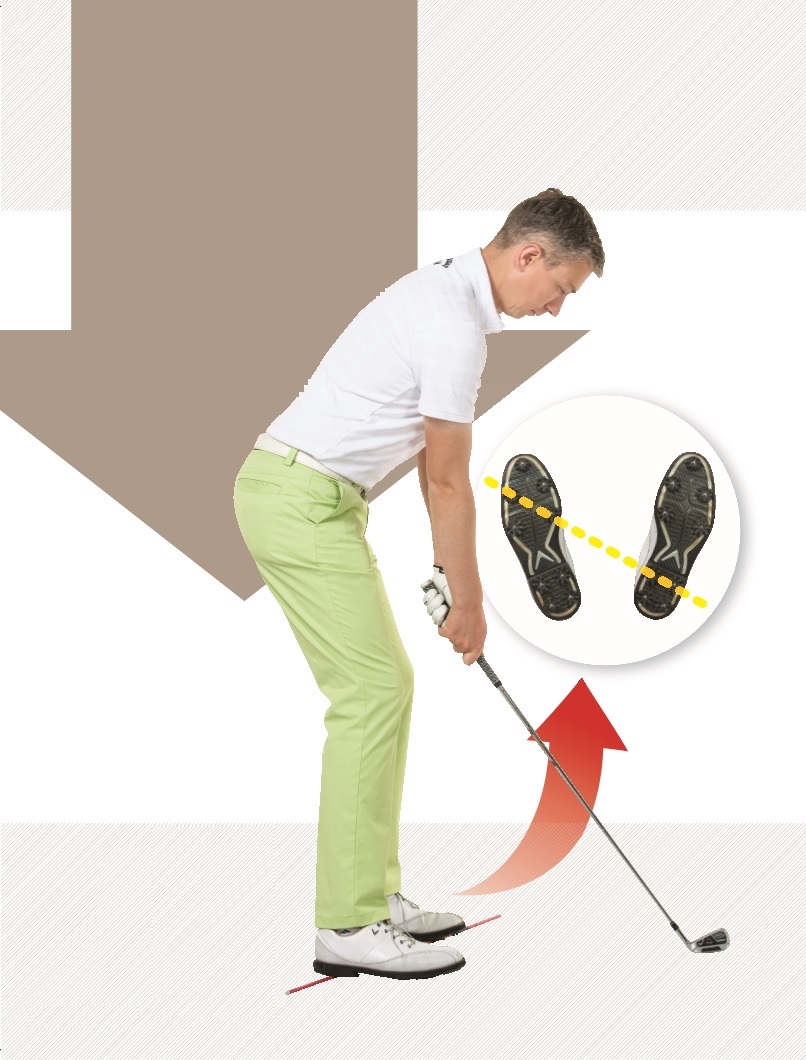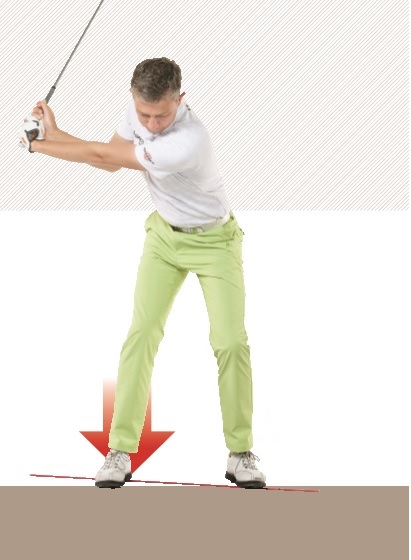Pressure Points
Pressure Points in a Golf Swing
Do you suffer from any of the following faults?
Early Extension (Backswing) – This is where your hips will get closer to the ball, resulting in a posture change from address. If you have this fault, you will find it difficult to strike the ball solid; you might also hit pushes, hooks, and have a high ball flight.
Hanging Back – This is where, in the downswing, you hang back on your right foot. At impact, you will have more weight on your right foot than left foot. Often, when a player does this, they are spinning their hips in the downswing – often referred to as Spinning Out. Again, with these faults, you will not be able to compress the ball, and you might also hit slices and pull shots.
Early Release – This is where, in the downswing, the angle between left arm and club shaft is lost, resulting in a loss of lag angle. This is a major power loss in the swing.
Scooping – At impact, the club shaft will be leaning away from the target with your hands behind the ball. Because you are increasing the loft of the club, the ball flight will be high, with a loss of distance. You will never get that low penetrating ball flight which maximizes your distance.
If any of these faults are yours, I believe that by understanding where the major pressure points should be, at the different stages of the swing, can very often be the cure. Try this simple drill.
Address – At address, place a stick underneath your feet. It should be placed in a way so it sits underneath your left toe and right heel. These are 2 key pressure points in the swing, and the stick being there will help give you an increased awareness of these points.
Step 1 – At the top of the backswing, the main pressure point should be underneath your right heel, so learn to feel more pressure on the stick at this point. This will help to fix the fault of Early Extension in the backswing.
Step 2 – In the transition, (change of direction from backswing to downswing) learn to keep some pressure on your right heel as you increase pressure underneath your left toe, or ball of your left foot. This is a key move in a good golf swing; it will help transfer your weight to your left foot without the spinning of the hips, fixing Hanging Back and Spinning Out. Also, because you are starting the downswing with your lower body, it will help increase your lag angle, fixing Early Release.
Step 3 – At impact, you can start to release the pressure from your right heel. If you have done step 1 and step 2 correctly, it will ensure you have transferred your weight onto your left foot, fixing Scooping. This will create a solid contact and a low penetrating ball flight, maximizing your own distance.



